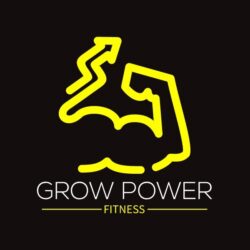Introduction
Have you ever marveled at the abilities of skilled athletes, musicians, or dancers who seem to perform effortlessly? It’s as if their bodies move with an innate grace and precision, making difficult tasks appear second nature. This phenomenon can be attributed to the concept of muscle memory, a fascinating aspect of human physiology that enables us to perform tasks with exceptional proficiency and minimal conscious effort. In this article, we’ll explore the intricacies of muscle memory, uncover the science behind it, and discover how it impacts various areas of our lives.
What is Muscle Memory?
Muscle memory refers to the ability of our muscles to remember and reproduce specific movements or actions with accuracy and precision. It is the result of the brain’s ability to store motor patterns and recall them when needed. This allows us to perform tasks without consciously thinking about each individual movement, leading to smoother, more efficient execution.
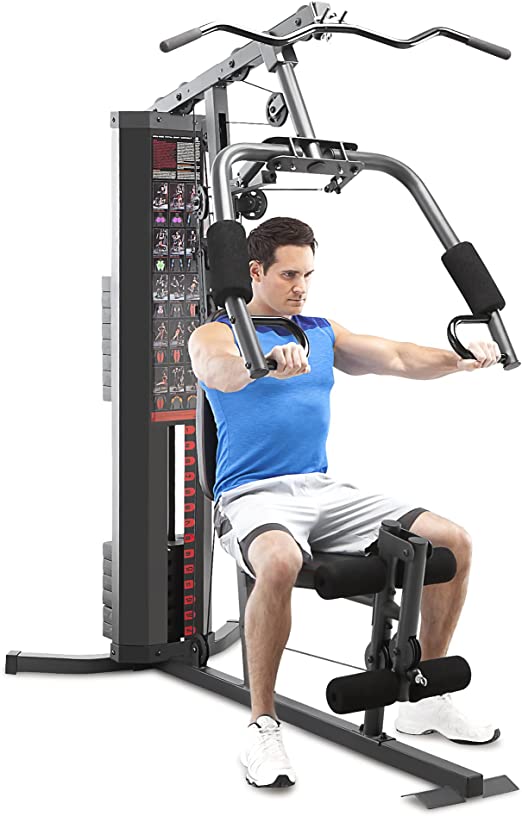
Marcy 150-lb Multifunctional Home Gym Station for Total Body Training
The Science Behind Muscle Memory
Muscle memory is rooted in neuroplasticity, the brain’s remarkable ability to adapt and change. When we repeatedly perform a specific movement or action, the brain creates neural pathways associated with that task. These pathways become more efficient over time, making the movement easier and more automatic. This process involves strengthening connections between neurons, optimizing the transmission of signals from the brain to the muscles involved.
How Does Muscle Memory Develop?
Muscle memory develops through a process of repetition and practice. When we engage in a particular activity consistently, such as playing an instrument or practicing a sport, our brain receives feedback from our senses and reinforces the associated motor patterns. This repetition allows the brain to fine-tune the neural pathways and make them more robust, resulting in improved motor skills and increased muscle memory.
Benefits
Muscle memory offers numerous benefits across various domains of life. It enables athletes to execute complex movements with precision and speed, musicians to play intricate compositions effortlessly, and dancers to perform intricate choreographies flawlessly. Moreover, muscle memory plays a crucial role in injury rehabilitation, as it aids in the recovery and restoration of lost physical abilities.
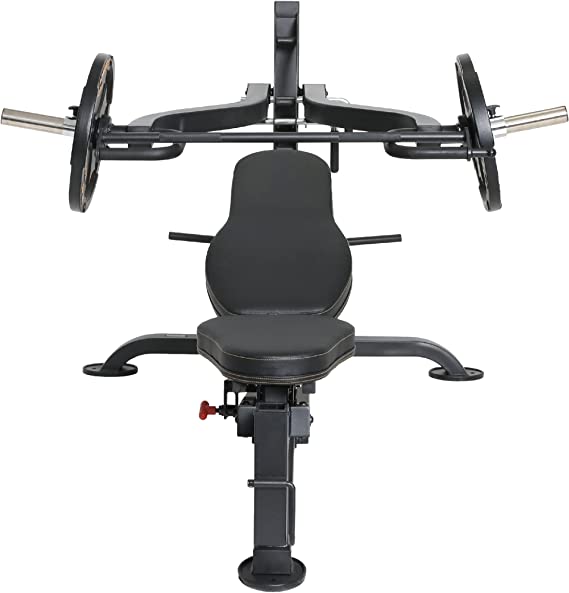
Powertec Fitness Workbench Multi Press – Adjustable Gym Equipment for Home – Multifunctional Bench Press – Universal Exercise Equipment for Strength Training
Training Techniques
To enhance muscle memory, certain training techniques can be employed. Deliberate practice, which involves focused and purposeful repetition of specific movements or actions, helps reinforce neural pathways and optimize muscle memory. Breaking down complex tasks into smaller components and gradually integrating them also facilitates the development of muscle memory. Additionally, incorporating variations and challenges into training routines can further enhance the adaptability of muscle memory.
Muscle Memory and Skill Acquisition
Muscle memory is closely linked to skill acquisition. When we learn a new skill, such as playing a new sport or instrument, the initial stages require conscious effort and deliberate thought. However, as we practice and develop muscle memory, the skill becomes more ingrained, allowing us to perform it more naturally and effortlessly.
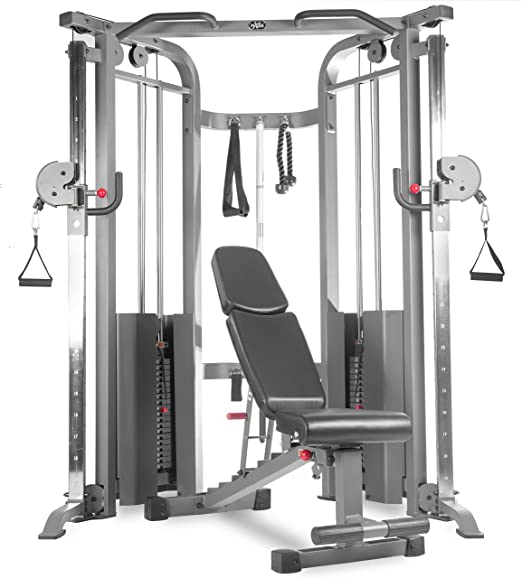
XMark Home Gym Functional Trainer Cable Machine, Dual Adjustable Pulley Machine with 200 lb Weight Stacks, Upgraded Accessories and Weight Bench Options Available
Overcoming Muscle Memory Plateaus
While muscle memory can greatly enhance our abilities, there may come a point where progress seems to stagnate. This is known as a muscle memory plateau, where our performance reaches a plateau and no further improvement is observed. However, with the right approach, it is possible to overcome these plateaus and continue to enhance your skills.
One effective strategy is to introduce variations into your training routine. Our muscles and brain thrive on novelty and adaptability. By introducing new exercises, techniques, or challenges, you can stimulate your muscles and break through the plateau. For example, if you’ve been practicing a specific dance routine, try incorporating different movements or styles to keep your muscles engaged and responsive.
Another approach is to focus on refining your technique. Often, when we rely too heavily on muscle memory, we may overlook the small details and nuances that can make a significant difference in performance. By consciously analyzing and improving your technique, you can refine your movements and unlock new levels of proficiency.
Additionally, cross-training can be beneficial in overcoming muscle memory plateaus. Engaging in complementary activities that target different muscle groups can provide a fresh stimulus to your body and challenge your muscle memory in new ways. For instance, if you’re a runner experiencing a plateau, incorporating strength training or swimming into your routine can help activate different muscles and improve overall performance.
Regularly assessing and setting new goals is also essential. By setting specific, measurable, achievable, relevant, and time-bound (SMART) goals, you provide yourself with clear targets to strive for. This helps maintain motivation, encourages continued growth, and allows you to track your progress effectively.
Remember, overcoming muscle memory plateaus requires patience and perseverance. It’s essential to stay dedicated to your training and maintain a positive mindset. Plateaus are temporary, and with consistent effort and a willingness to adapt, you can push through and reach new heights.
Muscle Memory in Sports and Physical Activities
Muscle memory plays a vital role in sports and physical activities. Athletes spend countless hours honing their skills and building muscle memory to achieve optimal performance. Whether it’s throwing a ball, swinging a racket, or executing a complex gymnastics routine, muscle memory allows athletes to perform with precision, speed, and efficiency. It enables them to react instinctively to different game situations, giving them a competitive edge.
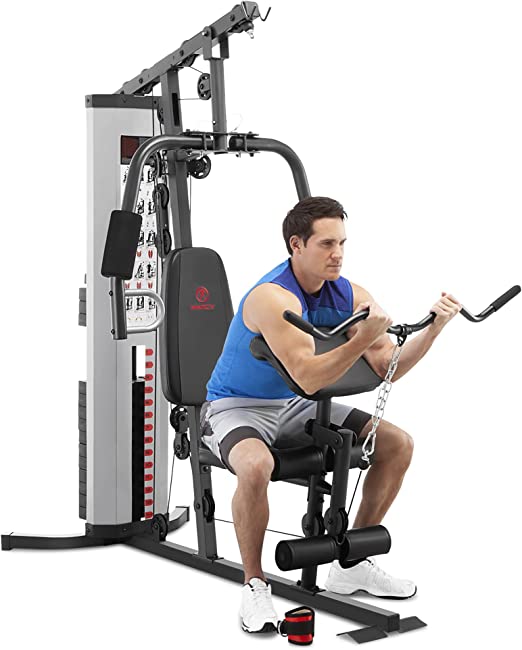
Marcy Multifunction Steel Home Gym 150lb Weight Stack Machine
Injury Rehabilitation
Muscle memory also plays a crucial role in injury rehabilitation. When an injury occurs, the affected muscles may weaken or atrophy due to inactivity. However, the muscle memory associated with the specific movement or action remains intact. This provides a foundation for the recovery process. Through targeted rehabilitation exercises and gradually increasing intensity, individuals can tap into their existing muscle memory and regain their previous level of functionality.
Music and Performing Arts
In the realm of music and performing arts, muscle memory is of paramount importance. Musicians develop muscle memory through hours of practice, allowing them to effortlessly play complex compositions. Pianists effortlessly navigate intricate melodies, guitarists swiftly transition between chords, and drummers maintain impeccable rhythm. Similarly, actors and dancers rely on muscle memory to perform challenging routines, delivering their lines or executing precise movements with grace and fluidity.
The Role of Repetition in Muscle Memory
Repetition is the key to developing and strengthening muscle memory. By consistently repeating a particular movement or action, we reinforce the neural pathways associated with it. However, it’s important to note that the quality of repetition matters as much as the quantity. Mindful and focused repetition that emphasizes correct technique and execution is far more effective than mindless repetition.
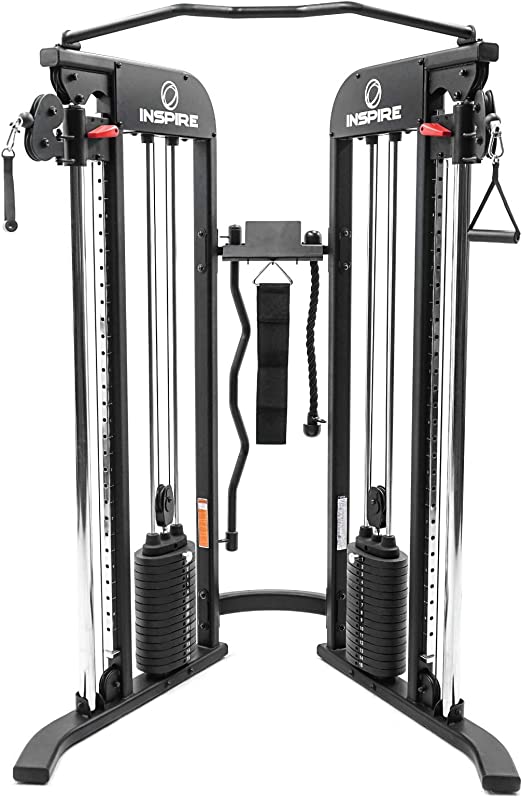
Inspire Fitness FTX Functional Trainer
How to Retain Muscle Memory
To retain muscle memory, it’s crucial to continue engaging in regular practice and maintenance. Consistency is key. Even if you’ve reached a level of proficiency, it’s important to keep your skills sharp through regular practice sessions.
Set aside dedicated time each day or week to practice the specific movements or actions you want to retain. By incorporating them into your routine, you reinforce the neural pathways associated with muscle memory. Whether it’s playing an instrument, practicing a sport, or honing your dance moves, consistent practice will help solidify and maintain your muscle memory.
Additionally, it’s essential to challenge yourself and push beyond your comfort zone. While repetition is important, simply going through the motions without introducing new challenges can lead to stagnation. Continuously seek opportunities to expand your skills, try more advanced techniques, or tackle more complex routines. By pushing the boundaries of your abilities, you keep your muscle memory adaptive and versatile.
Regularly seeking feedback and guidance from coaches, instructors, or mentors can also be immensely helpful. They can provide insights, correct any errors or inefficiencies in your technique, and suggest specific exercises or drills to improve your muscle memory. Constructive feedback is invaluable in refining your skills and optimizing your performance.
Furthermore, incorporating variation into your practice routine is beneficial. By practicing in different contexts, environments, or conditions, you expose your muscle memory to diverse stimuli. This fosters adaptability and ensures that your muscle memory remains robust and applicable in various situations. For example, if you’re a basketball player, practice shooting from different angles, distances, or even under pressure to enhance your muscle memory’s versatility.
Lastly, take care of your physical well-being. Proper nutrition, rest, and recovery are vital for maintaining optimal muscle function and memory. Ensure you’re fueling your body with nutritious foods, staying hydrated, and allowing ample time for rest and sleep. A healthy body supports a healthy mind and muscle memory.
In conclusion, muscle memory is a remarkable aspect of human physiology that allows us to perform tasks with exceptional proficiency. By understanding the science behind muscle memory and employing effective training techniques, we can unlock our body’s hidden potential. Remember, muscle memory is developed through repetition, refined through conscious technique, and sustained through consistent practice. Embrace the journey, push beyond plateaus, and continue to challenge yourself. With dedication and perseverance, you can harness the power of muscle memory and achieve extraordinary feats.

Altas Strength Home Gym Smith Machine with Pulley System Gym Squat Rack Pull Up Bar Upper Body Strength Training Leg Developer Light Commercial Fitness Equipment Included Accessories 3058
Frequently Asked Questions (FAQs)
Can muscle memory be developed at any age?
Absolutely! While it may take longer for adults to develop muscle memory compared to children or adolescents, the brain’s neuroplasticity allows for continued learning and adaptation throughout life.
Is muscle memory permanent?
Muscle memory can be long-lasting, but it requires regular maintenance. Without consistent practice, muscle memory can gradually fade over time.
Can muscle memory be transferred between similar activities?
Yes, muscle memory can transfer between similar activities. Skills learned in one activity can often be applied or adapted to another related activity, thanks to the underlying neural connections.
Can muscle memory be regained after a long period of inactivity?
While muscle memory can diminish with inactivity, it can also be regained with proper training and practice. The neural pathways associated with muscle memory remain intact, making it easier to relearn previously acquired skills.
Are there any shortcuts to developing muscle memory?
There are no shortcuts to developing muscle memory. It requires dedicated practice, repetition, and focused effort. Remember, it’s the quality of repetition that matters, not just the quantity.
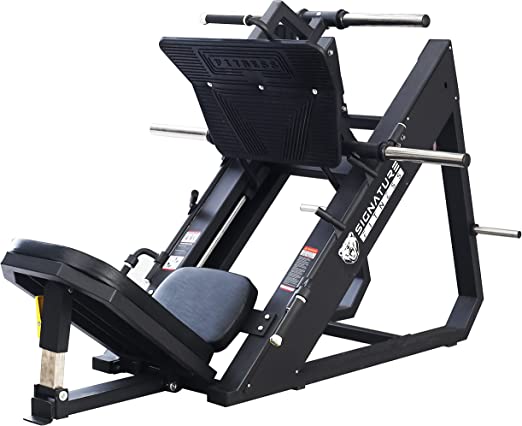
Signature Fitness SF-L2 Commercial Grade Plate Loaded Adjustable Leg Press Machine with Extra Plate Storage, Rated for 1,000 Pound Capacity, Black
